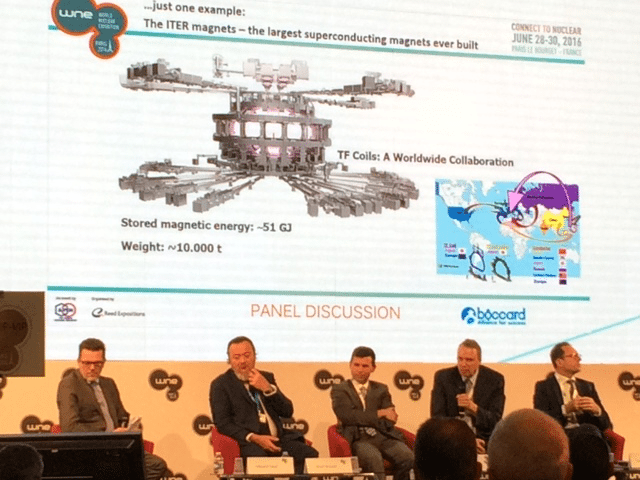Brexit Implications for UK Nuclear Power
When the UK, the European Union's (EU's) second-largest economy, voted to leave the union on June 23, reactions were swift and sometimes unexpected, but what does the Brexit vote mean for the nuclear power industry, which is an increasingly global one? Based on comments made at this week's World Nuclear Exhibition (WNE) outside Paris, the most honest assessment is that it is too soon to tell.
For one thing, even though the vote was to leave the EU, the formal process of exiting the EU has not begun and may not begin, if the buyer's remorse expressed even by some in favor of the exit leads to some form of backpedaling on the move.
Whether or not the breakup is finalized, strong international ties among nuclear industry players will remain, both on the part of major contractors and the vast international supply chain. Despite voices on both sides of the English Channel that are hoping for a complete breakdown in development of the Hinkley Point project, those within the industry appear committed to seeing that it moves forward.
At WNE, both representatives of 85% state-owned EDF, the French nuclear operator that has plans to build the UK's Hinkley Point C plant in the south of England, and Emmanuel Macron, the French minister for the economy, industry, and the digital sector, assured attendees that EDF and the French government remain committed to the project.
In October last year, EDF and China General Nuclear Power Corp. signed a strategic investment agreement with EDF to hold a 66.5% share. However, a final investment decision by EDF has yet to be made and is expected soon.
Though most of the attention has been given to Hinkley Point, the UK has a second new build project planned by NuGen, a Toshiba and ENGIE joint venture. That project aims to use the Westinghouse AP1000 at a 3,800-MW plant near the Sellafield site to be on the grid by 2020. NuGen CEO Tom Samson underscored on Tuesday at WNE that UK policy supports nuclear and that funding support through contracts for difference make new builds easier than in some countries.
Brexit may actually have more of an impact on the multinational ITER fusion project, being developed in France. Though the consequences of the Brexit vote are not yet clear, should the UK actually break from the EU, its companies and people would no longer be eligible to work on the massive fusion project, said Guenter Janeschitz, office deputy head, Central Integration Office, ITER, on a Wednesday afternoon WNE panel.
A 2010 ITER press release noted that the UK was third in the number of project contracts awarded, worth "well over 100M (115.5 Ma)."
-Gail Reitenbach, PhD, Editor (@GailReit, @POWERmagazine)
The post Brexit Implications for UK Nuclear Power appeared first on POWER Magazine.
